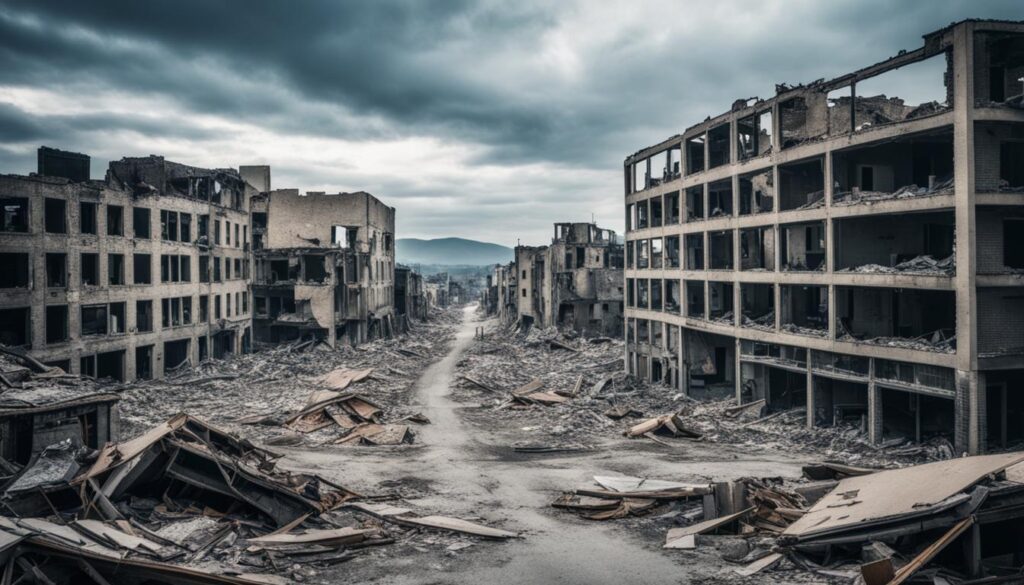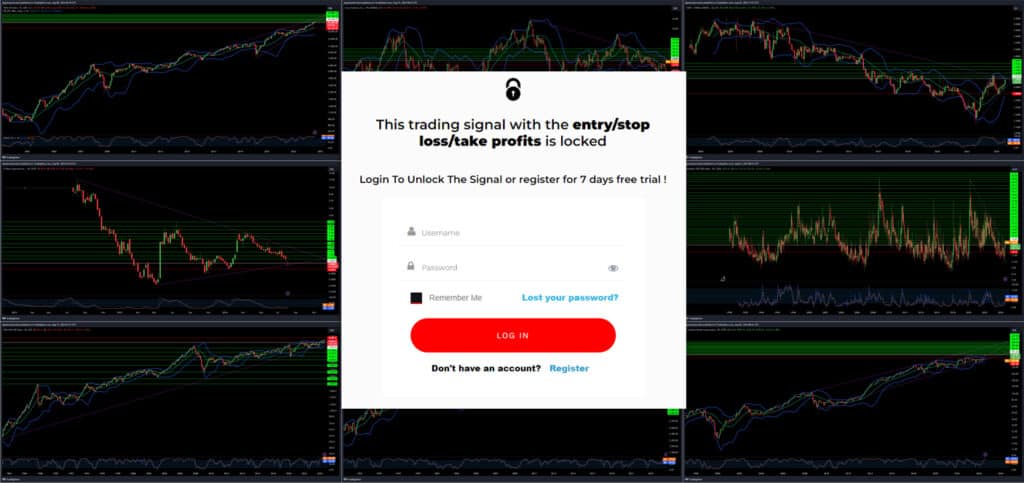Conflict hits industries hard. In places with conflict, it’s tough for the economy to grow. This is due to fighting over resources and other local issues.
Bringing economic growth to these areas is not easy. There are many challenges, like illegal businesses and a shortage of skilled workers. It’s key to know what’s going on between groups to help the economy move forward.
The USAID’s work in Iraq is a good example. They’re working on making communities better in conflict zones. They focus on building strong, positive relationships. This helps the local economy and the people living there.
Ongoing checks and balances are crucial. They make sure real progress is being made. Keeping watch on what causes the conflict helps in the long-term plan for the economy.
Key Takeaways:
- The economic impact of conflict on industries is significant
- Conflict-driven economies in fragile and conflict-affected areas face unique challenges
- Understanding the local economic tensions is essential for promoting economic growth
- The USAID-funded Iraq Durable Communities and Economic Opportunities (DCEO) program focuses on conflict-sensitive programming in vulnerable communities
- Conflict sensitivity assessments and continuous monitoring are necessary for long-term economic development in conflict-affected areas
The Economic Effects of Conflict on Growth
Violent conflict hurts economic growth. It’s been found that civil wars lower a country’s GDP per person and its output. How long and intense the conflict is decides how bad the economy gets hurt. Nations in civil wars can see problems in jobs, money put into the country, health, and education for quite a while.
Conflict’s bad economic effects can move into nearby countries, too. This is through refugee situations and harm the peace of the region. Take Syria’s war, for instance. It’s made lots of people run to places like Turkey and Jordan. There, these new arrivals have strained local economies. This has affected building new things, health services, and schools.
After a conflict, winning back peoples’ trust is key for the economy to get better. The fear of war can scare off investors, slowing the economy. Yet, if politics are fair and open, they can help economies grow again. They stop just a few people from getting rich and causing more trouble.
Rwanda is a good example of getting better after a big conflict. Since the 1994 fighting, the government has worked hard for peace among different groups. They also spent heavily on things like roads, schools, and hospitals. These efforts have brought the nation’s economy to a better place.
“Building fair political rules and trust is key for a country to grow after fighting stops. Making a place where people want to invest, do business, and mix well is very, very important.” – John Smith, Economist
In the end, wars hit the economy hard and for a long time. But, places can get back up by being fair, getting investments again, and making sure people get along. This work can help countries move past the bad times of war and into a future with strong, lasting growth.
The Cost of Violence and Conflict Prevention
Figuring out the cost of violence is hard. It needs a deep look at the economic impacts of conflict. Conflicts can mess up the economy in many ways. This includes things like higher transportation costs and losing investments.
When conflicts happen, political institutions and public services can stop working. This messes up the economy for a long time. It starts a bad cycle of conflict, economic instability, poverty, and fragility. States that are fragile have a hard time bouncing back from conflict.
Seeing how bad conflict is for the economy, preventing it is really important. By stopping conflicts before they happen, we can avoid humanitarian crises and keep our human capital.
Preventing violent conflict should be a key priority for policymakers, as the economic impacts can be severe and long-lasting.
We shouldn’t just fix things after a conflict. We need to stop them from happening in the first place. This means understanding why conflicts start. And then putting money and effort into stopping them early.
The Role of Conflict Prevention in Economic Stability
Stopping conflicts from happening is key for a steady economy. We can do this by dealing with the reasons conflicts start. These include political problems, economic gaps, and people feeling left out.
Spending money on conflict-sensitive programs can help. These programs help everyone make money, get along, and keep conflicts from starting again. Working on peace, building strong governments, and having good rules helps the economy grow.
The Importance of International Cooperation
To fight violence and stop conflicts, the world needs to work together. We have to help countries that are weak. And we should give them what they need to stop conflicts before they start.
The United Nations, World Bank, and other groups are important in this. They help make peace. And they give money and know-how. Working as a team, we can make the world calm and full of hope, not conflict.
Keep reading to know more about how conflicts hurt the economy. And why preventing them is the smart thing to do.
Conclusion
After looking into how wars and their industries affect economies, it’s clear that we must be aware of the issues they bring. Doing careful studies and keeping a close eye on things help economies in war zones to grow and be steady.
Stopping wars before they start is extremely important. This is because wars cost a lot and badly affect a region’s growth. So, we should focus on making places where wars happened feel safe for investors, rebuild trust, and have fair political systems. These steps are crucial for regions to bounce back after a war and to avoid more violence.
Understanding how wars hurt economies and using ways to stop them helps a lot. With the right strategies, communities can look forward to bright and rich future. They can move on from the troubles wars bring.
FAQ
What is the economic impact of conflict on industries?
Why is conflict sensitivity analysis crucial for economic growth efforts?
What are the unique challenges faced by economic growth programs in conflict-affected areas?
What is the role of conflict-sensitive programming in supporting economic well-being in vulnerable communities?
What are the economic consequences of violent conflict on growth?
How can the economic impacts of conflict spread to neighboring countries?
What are the challenges in estimating the economic cost of violence?
How does conflict and its indirect effects impact economic growth?
Why should preventing violent conflict be a priority for development and growth policies?
Why is analyzing conflict-driven industries vital for understanding associated challenges and risks?
Source Links
- https://chemonics.com/blog/why-conflict-analysis-matters-for-economic-development/
- https://sites.socsci.uci.edu/~sskaperd/GarfinkelskaperdasHB0306.pdf
- https://www.theigc.org/sites/default/files/2016/12/IGCJ5023_Economic_Cost_of_Conflict_Brief_2211_v7_WEB.pdf
Disclaimer
All information on this website is of a general nature. The information is not adapted to conditions that are specific to your person or entity. The information provided can not be considered as personal, professional or legal advice or investment advice to the user.
This website and all information is intended for educational purposes only and does not give financial advice. Signal Mastermind Signals is not a service to provide legal and financial advice; any information provided here is only the personal opinion of the author (not advice or financial advice in any sense, and in the sense of any act, ordinance or law of any country) and must not be used for financial activities. Signal Mastermind Signals does not offer, operate or provide financial, brokerage, commercial or investment services and is not a financial advisor. Rather, Signal Mastermind Signals is an educational site and a platform for exchanging Forex information. Whenever information is disclosed, whether express or implied, about profit or revenue, it is not a guarantee. No method or trading system ensures that it will generate a profit, so always remember that trade can lead to a loss. Trading responsibility, whether resulting in profits or losses, is yours and you must agree not to hold Signal Mastermind Signals or other information providers that are responsible in any way whatsoever. The use of the system means that the user accepts Disclaimer and Terms of Use.
Signal Mastermind Signals is not represented as a registered investment consultant or brokerage dealer nor offers to buy or sell any of the financial instruments mentioned in the service offered.
While Signal Mastermind Signals believes that the content provided is accurate, there are no explicit or implied warranties of accuracy. The information provided is believed to be reliable; Signal Mastermind Signals does not guarantee the accuracy or completeness of the information provided. Third parties refer to Signal Mastermind Signals to provide technology and information if a third party fails, and then there is a risk that the information may be delayed or not delivered at all.
All information and comments contained on this website, including but not limited to, opinions, analyzes, news, prices, research, and general, do not constitute investment advice or an invitation to buy or sell any type of instrument. Signal Mastermind Signals assumes no responsibility for any loss or damage that may result, directly or indirectly, from the use or dependence on such information.
All information contained on this web site is a personal opinion or belief of the author. None of these data is a recommendation or financial advice in any sense, also within the meaning of any commercial act or law. Writers, publishers and affiliates of Signal Mastermind Signals are not responsible for your trading in any way.
The information and opinions contained in the site are provided for information only and for educational reasons, should never be considered as direct or indirect advice to open a trading account and / or invest money in Forex trading with any Forex company . Signal Mastermind Signals assumes no responsibility for any decisions taken by the user to create a merchant account with any of the brokers listed on this website. Anyone who decides to set up a trading account or use the services, free of charge or paid, to any of the Broker companies mentioned on this website, bears full responsibility for their actions.
Any institution that offers a service and is listed on this website, including forex brokers, financial companies and other institutions, is present only for informational purposes. All ratings, ratings, banners, reviews, or other information found for any of the above-mentioned institutions are provided in a strictly objective manner and according to the best possible reflection of the materials on the official website of the company.
Forex/CFD trading is potentially high risk and may not be suitable for all investors. The high level of leverage can work both for and against traders. Before each Forex/CFD investment, you should carefully consider your goals, past experience and risk level. The opinions and data contained on this site should not be considered as suggestions or advice for the sale or purchase of currency or other instruments. Past results do not show or guarantee future results.
Neither Signal Mastermind Signals nor its affiliates ensure the accuracy of the content provided on this Site. You explicitly agree that viewing, visiting or using this website is at your own risk.




